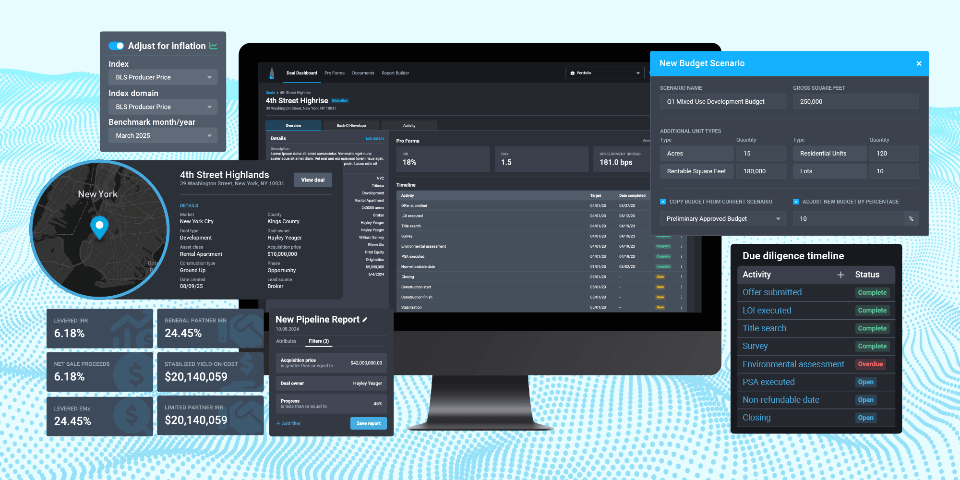Northspyre Blog
Expert insights & resources
Stay informed with the latest tech trends, industry insights, and best practices for real estate development.

Real Estate Development, Real Estate Technology
Supercharge Acquisitions & Investment: Introducing Northspyre Deal
Discover how Northspyre Deal keeps teams aligned and accountable across the development pipeline.

Real Estate Development, Real Estate Technology
Mastering the DCF Model for Real Estate: How to Leverage Tech for Better Financial Forecasting
Here's how to master the DCF model for real estate.

Real Estate Development, Technology
Smarter, Faster, More Predictable: How Northspyre Powered Real Estate Development in 2025
A look back at product updates, new features, and achievements in 2025.

Market Trends, Real Estate Development
Why Manufacturing is Taking the Spotlight in Industrial Development
Learn how legislation is boosting manufacturing in industrial development.

Market Trends, Real Estate Development
2026 Trends to Watch in Commercial Real Estate
Here are the top 2026 trends in CRE to watch.

Market Trends, Real Estate Development
3 Ways to Defer Capital Gains on Your Commercial Real Estate Sale
No one likes a tax bill, but in the commercial real estate industry,…

Market Trends, Real Estate Development
2026 PropTech Trend Predictions
Top 5 poptech trends that will impact real estate development in 2026.

Project Management, Real Estate Development
9 Best Real Estate Project Management Software for 2026
Learn which solution is the best fit for your needs.

Market Trends, Real Estate Technology
Fed Votes to Cut Interest Rates Again— Will There Be a Third?
In October, The Federal Reserve voted to lower interest rates for a second…
See Northspyre in action
See how leading developers use Northspyre to work smarter at every stage of the development lifecycle.